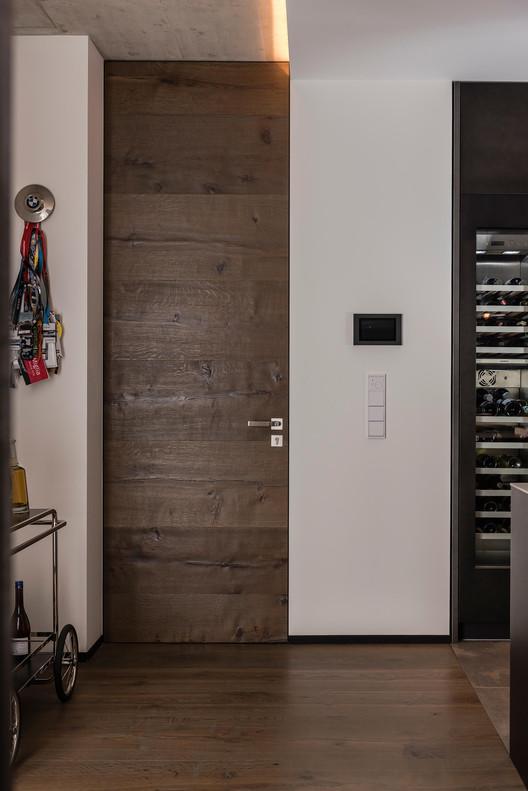
Interior doors serve multiple purposes in homes, such as providing security and privacy, separating spaces and buffering noise. But besides these obvious functions, they can also set the tone and enhance a room’s aesthetics with their beauty, becoming powerful design features by themselves. They certainly should not be taken lightly when designing any interior space. Considering this impact, architects must take every factor into account when choosing a door, including color, material, style and swinging motion. Dimensions are also important, but tend to be standard as they are limited by the size of the door frame. Usually, they don’t exceed 80 inches (or 203 cm) in height and range from 24 to 36 inches (70 to 90 cm) in width. Recently, however, this has taken a turn in modern design.
With contemporary houses prioritizing large hallways and tall ceilings, oversized doors that drastically exceed those common dimensions are especially in trend. Although they are generally customized, require a bigger investment and are commonly associated to luxury, their ability to make a bold statement is unmatched. They automatically draw users’ attention and accentuate a building’s height, making any space (luxury or not) seem grand and elegant. Without a doubt, these dramatic floor-to-ceiling doors will continue their dominance in the architectural marketplace. To explore their endless functional and aesthetic possibilities, in this article we present a selection of beautiful examples that can be found in Architonic’s ‘Internal doors’ section.

























